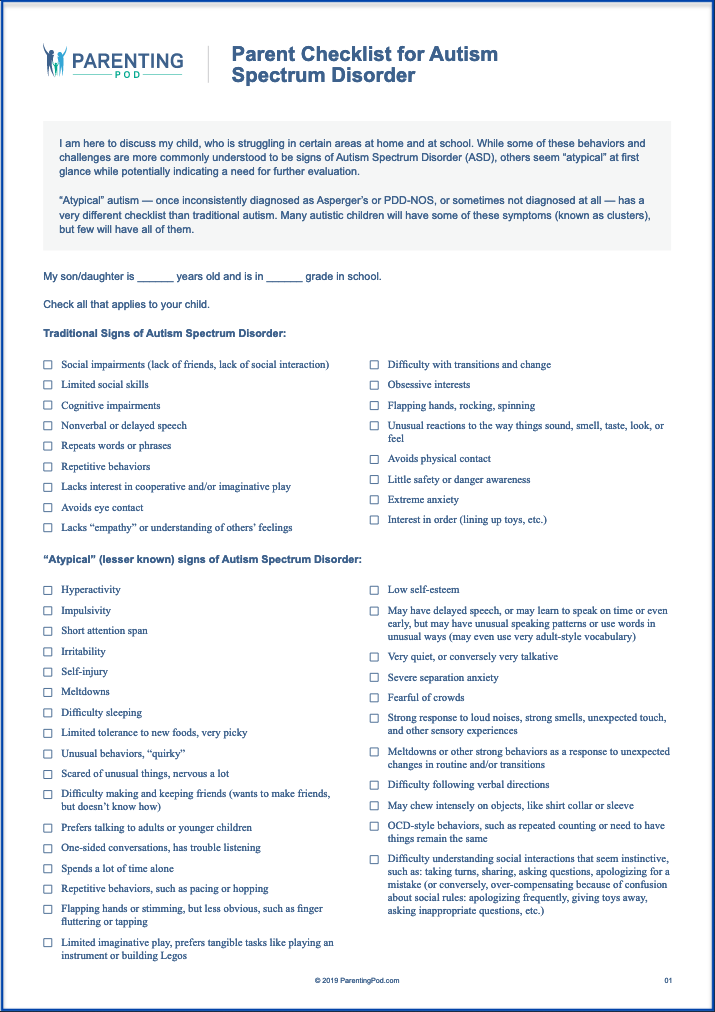Can Autism Behavioral Therapy work long term? Here’s what research shows
Can Autism Behavioral Therapy work long term? Here’s what research shows
Blog Article
Comprehending the Influence of Behavioral Autism on Daily Life and Social Communications
You could not understand just how deeply behavior autism impacts day-to-day live and social interactions. Individuals on the spectrum commonly navigate a world loaded with interaction difficulties and sensory overload. These difficulties can cause stress and seclusion, impacting their partnerships and total well-being. Recognizing these nuances is crucial for promoting helpful settings. What methods can we execute to create even more inclusive rooms and significant connections? The responses might stun you.
Defining Behavior Autism and Its Attributes
Behavior autism, commonly referred to as autism range disorder (ASD), includes a range of problems characterized by challenges in social communication, interaction, and recurring habits. You may observe that individuals with ASD often struggle to translate social hints, which can lead to misconceptions in conversations. They might find it difficult to develop eye contact or involve in small talk, making social circumstances feel frustrating.
Interaction troubles can manifest in numerous methods, from delayed speech advancement to a preference for using fewer words. By acknowledging these attributes, you can promote an atmosphere that promotes acceptance and urges effective interaction, assisting individuals with autism prosper in their daily communications.
The Spectrum of Autism: Comprehending Irregularity in Behavior
Autism range condition (ASD) isn't a one-size-fits-all diagnosis; it differs widely among people. You might come across individuals who are extremely verbal and engage conveniently in conversations, while others could favor solitary activities or interact non-verbally.
Furthermore, the way individuals with ASD reply to sensory input can differ considerably; some might be bewildered by intense lights or loud noises, whereas others grow in stimulating environments. The range also includes differences in social communications; some individuals may battle to interpret social cues, while others browse social settings with family member convenience. Comprehending this irregularity is crucial, as it helps you value each individual's one-of-a-kind experience and tailor assistance to their specific demands, fostering a more inclusive setting for every person.
Interaction Obstacles Faced by People With Autism
When you interact with people on the autism range, you might observe their distinct interaction obstacles. They frequently face problems with both verbal and nonverbal hints, which can impact their social communications. Understanding these barriers is necessary for promoting far better connections and support.

Verbal Communication Difficulties
Several people on the autism range experience spoken communication troubles that can considerably affect their daily communications. Your tone, rate, or quantity might not line up with social assumptions, triggering others to misunderstand your purposes. Recognizing these challenges can aid you and your assistance network develop methods to boost interaction and cultivate far better connections with others in your day-to-day life.
Nonverbal Interaction Obstacles
Spoken communication isn't the only challenge individuals on the autism range face; nonverbal communication obstacles can be equally as significant. You may locate it challenging to translate body language, face expressions, and eye contact, which are crucial for efficient interaction. These challenges can cause misconceptions or misinterpretations of social hints, making interactions feel overwhelming or complex. You might struggle to reveal your own emotions with nonverbal means, leaving others uncertain of your feelings or intents. This detach can create feelings of isolation and irritation. Identifying these barriers is critical for fostering understanding and empathy in your interactions. By attending to nonverbal communication, you can discover strategies to improve your social experiences and improve your overall lifestyle.
Social Communication Impacts
Social interactions can frequently feel frustrating due to the unique communication challenges encountered by individuals with autism. Identifying these obstacles can assist you locate techniques to improve interaction, such as exercising social abilities in risk-free setups or utilizing aesthetic aids. Recognizing your demands allows you to navigate social interactions with higher self-confidence and ease.
Social Communication and Connection Structure in Autism
While building relationships can be challenging for people with autism, recognizing their special viewpoints and communication styles can foster significant connections. You may notice that numerous individuals on the range prefer direct communication and might have problem with social signs or little talk. By being straightforward in your interactions, you can assist develop an atmosphere where they really feel comfortable.
Make the effort to pay attention and observe just how they reveal themselves. This insight can lead you in guiding discussions better. Engaging in shared interests can additionally offer as see here now a bridge to much deeper connections. Whether it's a leisure activity, a preferred program, or a mutual passion, these typical strings can open doors to friendship.
Every Day Life Regimen: Navigating Strategies and challenges
Maneuvering daily life regimens can be particularly testing for people with autism, especially when unforeseen changes occur. To browse these difficulties, think about executing aesthetic schedules or lists.
Developing a routine that includes sensory breaks can also be valuable. This aids develop an understanding atmosphere.
Last but not least, method mindfulness methods to take care of anxiety and anxiety. Simple breathing exercises or basing techniques can make a considerable difference. By integrating these methods, you can boost your everyday regimen and lessen disruptions, making life really feel much more workable.
Toughness and Capacities of People on the Autism Spectrum
Comprehending every day life regimens is simply one aspect of the autism experience. Many individuals on the autism spectrum possess amazing toughness and capacities that set them apart. You may discover that your interest sites to detail is exceptional, permitting you to excel in tasks that need precision and focus. Your capability to assume outside the box can lead to innovative remedies in numerous situations.
Moreover, your memory abilities usually beam, specifically in areas of rate of interest. Aba Therapist Near Me. This knack for retaining details can make you a beneficial resource in areas like scientific research, art, or innovation. You may also show strong visual thinking, enabling you to visualize complicated principles and resolve issues creatively
Additionally, your distinct point of view on the globe can promote compassion and understanding in others, improving social interactions. Accepting these toughness not just increases your confidence but additionally assists others appreciate the varied talents you offer the table.
Producing Comprehensive Settings for People With Autism
Developing inclusive settings for individuals with autism begins with developing sensory-friendly rooms that deal with their unique demands. You can also promote chances for social interaction, assisting to build relationships and connections. By making these adjustments, you'll contribute to a much more inviting atmosphere for every person.
Creating Sensory-Friendly Spaces
While making sensory-friendly areas, it's important to mirror on the unique needs of individuals with autism. Integrate check out here quiet zones where people can pull back and recharge when overwhelmed. Consist of aesthetic timetables or clear signs to assist individuals browse the room confidently.
Promoting Social Interaction Opportunities
Creating sensory-friendly spaces not only addresses individual comfort yet additionally establishes the stage for purposeful social communications amongst people with autism. Urge peer mentoring, combining individuals with autism with encouraging peers that can direct them via social scenarios. By carrying out these approaches, you can enhance social possibilities, assisting people with autism construct relationships and enhance their social abilities in a safe, inviting setting.

Regularly Asked Concerns
Exactly How Can Friends Support Somebody With Behavioral Autism?
You can support a friend with behavioral autism by being patient, listening proactively, and valuing their borders. Take part in activities they delight in, connect freely, and create a comfy environment where they feel valued and comprehended.
What Resources Are Available for Parents of Kid With Autism?
You can check out different sources for parents of kids with autism, including support system, instructional web sites, and neighborhood area solutions. Getting in touch with various other moms and dads can also provide valuable insights and shared experiences to help browse obstacles.
Can Behavioral Autism Adjustment Gradually?

Yes, behavioral autism can change in time. You might observe changes in interaction, social skills, and actions as your youngster grows. Early treatment and assistance frequently play crucial roles in these developing modifications.
Exactly How Do Sensory Sensitivities Affect Every Day Life?
Sensory level of sensitivities can make everyday experiences overwhelming. You could deal with intense lights or loud noises, bring about stress or evasion. Locating environments that suit your demands can significantly enhance your convenience and total life.
What Prevail Misconceptions About Behavioral Autism?
You may believe behavioral autism just impacts interaction abilities, however it's more complicated. Several assume individuals lack empathy or knowledge, which isn't true. Recognizing these mistaken beliefs helps foster approval and support for those on the range.
Behavioral autism, typically referred to as autism spectrum disorder (ASD), incorporates an array of problems identified by challenges in social communication, interaction, and repeated actions.Social interactions can commonly feel overwhelming due to the distinct interaction obstacles encountered by people with autism.Creating sensory-friendly rooms not just addresses private comfort however additionally establishes the phase for significant social communications among individuals with autism. Urge peer mentoring, matching people with autism with helpful peers who can assist them with social situations. By carrying out these techniques, you can boost social possibilities, aiding people with autism build relationships and strengthen their social skills in a safe, inviting setting.
Report this page